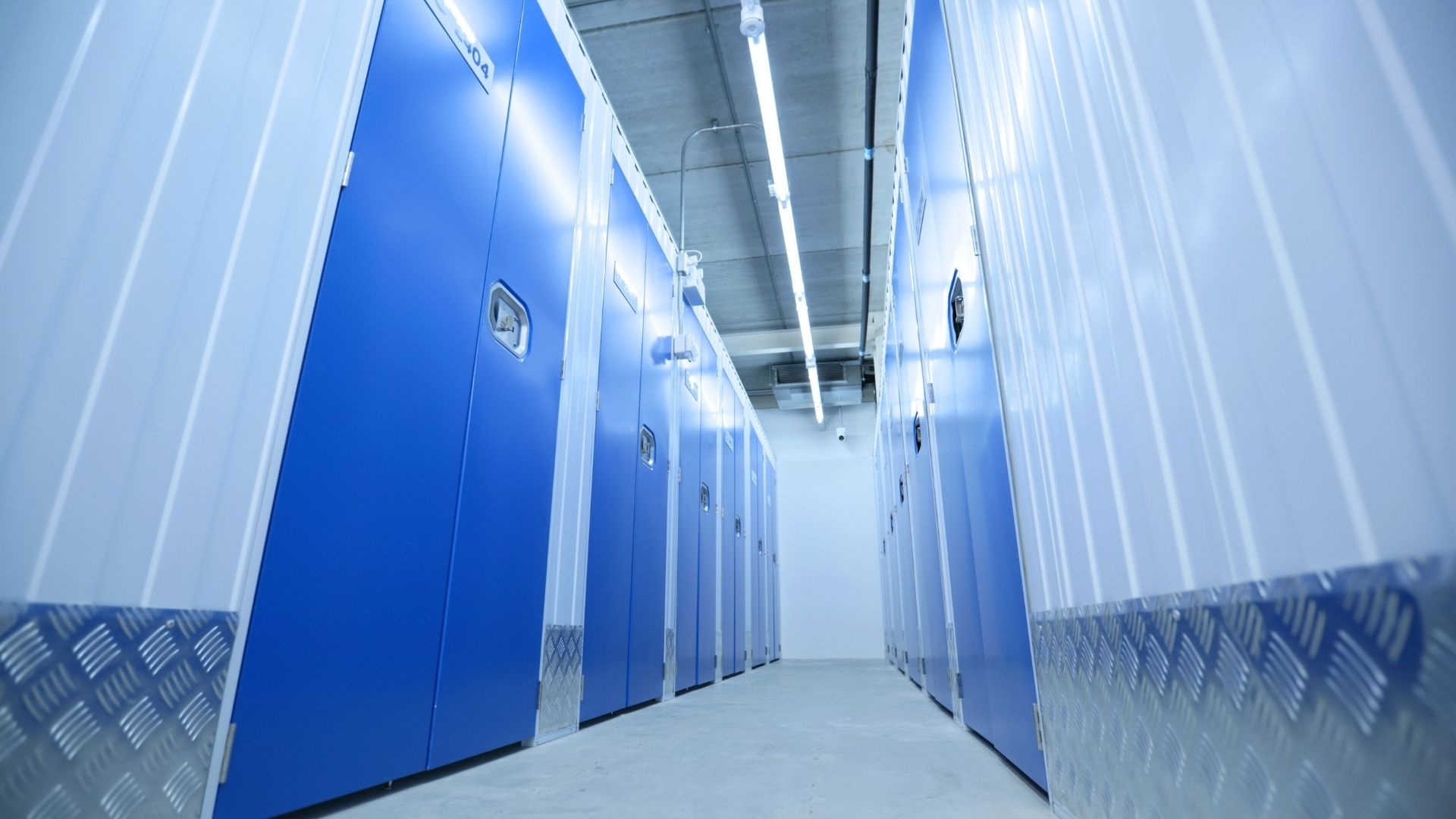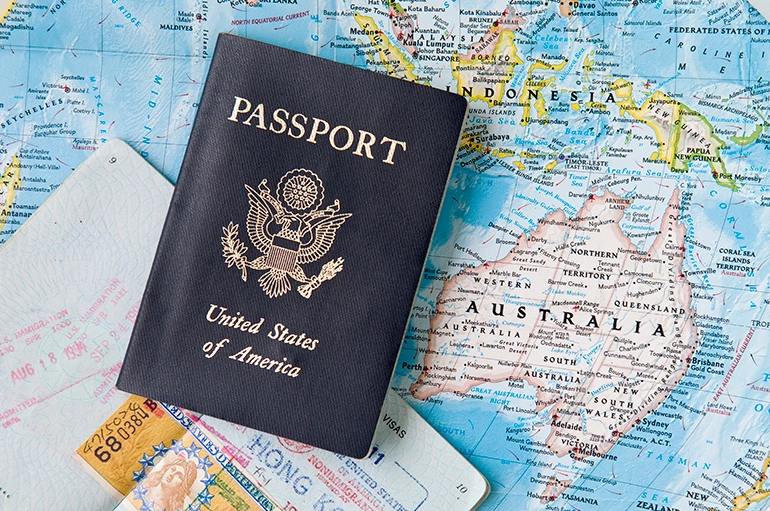
Moving and Storage Tips for Expats

MeSpace Self Storage Specialist
Categories : Storage Tips
2 min read • Sep 20, 2016

Summary
Moving to another country can be difficult for a variety of reasons: new culture, new language, new food, meeting new friends, and more. One way to ease the transition is to keep your move as simple and streamlined as possible. Here, we outline storage and moving tips for your new job in a new country.Introduction
Moving to a new country often means you will need to become familiar with a new money and banking system, business culture, how real estate transactions (including apartment or house rentals) are handled, and how to adjust to unfamiliar foods and drinks. You will also need to develop at least a rudimentary understanding of the language. All of this change coming at you at once is stressful, to say the least! When you are also trying to get your belongings into the country, dealing with customs requirements and moving companies can seem overwhelming. One trick we've learned from many expats is that a storage unit can be a very useful tool in saving your sanity and making the move a little less stressful. But it's more than just renting a unit and dumping your stuff! Knowing a few tips and tricks about how to pack, what to pack, and how to arrange your items in the right size unit in a storage facility that caters to your particular storage needs will help you get through this transition time with your sanity intact.Tips for Expats Moving Abroad
Understand the Language and Culture
 Visiting a city or country as a tourist is nothing like living there for months or years at a time. While tourists can usually expect to be catered to in exchange for their money, expats must understand how living in their chosen foreign country, city, and neighborhood will feel from day to day. A tourist most often views the culture and language from a superficial standpoint—here today, gone in a week or two, with lots of pictures, souvenirs, and fun stories to share with the mates back home. An expatriate, however, must deeply consider the language and culture in their attempt to survive and thrive in their new home month after month.
Expats who have gone through the experience of moving to a foreign country almost universally encourage those who are considering making a move to live like a local for at least a month before making any major decisions. Rent an apartment or house in a neighborhood that reflects the standard of living you would be able to afford if you lived there permanently. Shop in the local stores and markets, eat at local restaurants, and speak to as many people as you can. Take language classes to learn the basics; or, if you already know the basics of the language, take a class to become more fluent.
Tips for better understanding the language and culture of your prospective home:
Visiting a city or country as a tourist is nothing like living there for months or years at a time. While tourists can usually expect to be catered to in exchange for their money, expats must understand how living in their chosen foreign country, city, and neighborhood will feel from day to day. A tourist most often views the culture and language from a superficial standpoint—here today, gone in a week or two, with lots of pictures, souvenirs, and fun stories to share with the mates back home. An expatriate, however, must deeply consider the language and culture in their attempt to survive and thrive in their new home month after month.
Expats who have gone through the experience of moving to a foreign country almost universally encourage those who are considering making a move to live like a local for at least a month before making any major decisions. Rent an apartment or house in a neighborhood that reflects the standard of living you would be able to afford if you lived there permanently. Shop in the local stores and markets, eat at local restaurants, and speak to as many people as you can. Take language classes to learn the basics; or, if you already know the basics of the language, take a class to become more fluent.
Tips for better understanding the language and culture of your prospective home:
- Take language classes; if you can, choose a native speaker or long-term expat as your teacher.
- Befriend other expats who can help you navigate the finer points of cultural do's and don'ts, but locals are far very effective at showing you how to behave in an acceptable way.
- Immerse yourself in the culture by speaking as much as possible with local people, most of whom will appreciate your attempts to learn and speak their language.
- Try out your prospective neighborhood during the off-season or during the time of the worst weather, which will allow you to see a city at the least beautiful times of year and with the least tourist-friendly attitudes of the locals.
Research Your New Neighborhood
 Aside from living in your prospective neighborhood for three or four weeks, there's plenty you can learn from home. Spend as much time as possible researching local news on Internet sites and in newspapers to understand local concerns and politics. If you plan to bring children with you or want to attend school yourself, you'll need to know what educational facilities are available along with any associated costs and enrollment requirements. Ask yourself these questions to guide your research: where and how will you be able to access healthcare? How do you go about renting, leasing, or buying a place to live according to local laws? What recourse will you have if you are the victim of a crime? How will you get around? What are the best legal methods to smooth bureaucratic red tape?
Expat forums are a great way to get this kind of information from people who share your perspective and concerns. Expats are often willing to answer your specific questions or point you in the right direction for answers.
If you speak the language or have someone who can accurately translate for you, it's also very valuable to get locals' perspectives on these topics. You may never have considered how the way you speak and act at home is part of your engrained cultural identity, and you might be surprised to find how much you will need to change what comes naturally to you in order to effectively mesh into your new home. While some of that knowledge comes only with time and experience, the more research you do before making the move, the more ready you'll be to deal with any future culture shock you experience.
Aside from living in your prospective neighborhood for three or four weeks, there's plenty you can learn from home. Spend as much time as possible researching local news on Internet sites and in newspapers to understand local concerns and politics. If you plan to bring children with you or want to attend school yourself, you'll need to know what educational facilities are available along with any associated costs and enrollment requirements. Ask yourself these questions to guide your research: where and how will you be able to access healthcare? How do you go about renting, leasing, or buying a place to live according to local laws? What recourse will you have if you are the victim of a crime? How will you get around? What are the best legal methods to smooth bureaucratic red tape?
Expat forums are a great way to get this kind of information from people who share your perspective and concerns. Expats are often willing to answer your specific questions or point you in the right direction for answers.
If you speak the language or have someone who can accurately translate for you, it's also very valuable to get locals' perspectives on these topics. You may never have considered how the way you speak and act at home is part of your engrained cultural identity, and you might be surprised to find how much you will need to change what comes naturally to you in order to effectively mesh into your new home. While some of that knowledge comes only with time and experience, the more research you do before making the move, the more ready you'll be to deal with any future culture shock you experience.
Find Someone You Can Turn to For Help
 Having someone you can turn to for help before, during, and after your move will give you peace of mind—especially when you hit the point where you are so overwhelmed and homesick that you consider running home as fast as you can (usually around the three month mark after moving). Again, expat associations and friends can be invaluable resources as you figure out the laws, customs, and culture of your new home. Local authorities, business contacts, professionals, and new local friends can also help you make sense of and navigate through challenges you will encounter.
While nothing beats person-to-person communication, Internet sites have been created exclusively to assist expats in all stages of their transition from one country to another and are amazing resources.
Here are some of the most highly rated Internet sites and apps that can help you when you have questions:
Having someone you can turn to for help before, during, and after your move will give you peace of mind—especially when you hit the point where you are so overwhelmed and homesick that you consider running home as fast as you can (usually around the three month mark after moving). Again, expat associations and friends can be invaluable resources as you figure out the laws, customs, and culture of your new home. Local authorities, business contacts, professionals, and new local friends can also help you make sense of and navigate through challenges you will encounter.
While nothing beats person-to-person communication, Internet sites have been created exclusively to assist expats in all stages of their transition from one country to another and are amazing resources.
Here are some of the most highly rated Internet sites and apps that can help you when you have questions:
- A list of the top 10 language translation apps for mobile devices from TechPP.com. One of these apps might be a lifesaver when speaking with medical personnel, a lawyer, or a police officer.
- XE Currency App for iPhone and Android: choose the free or pro version depending on your needs.
- ExpatInfoDesk.com is a great resource for English speakers planning a move to another country. The site offers city guides, forums, informative articles, and useful links on a wide range of topics related to moving to and living in a foreign country.
- ExpatForum.com allows you to access important information and ask questions about such topics as legal issues, required documents, and other topics that are often confusing and murky for first-time expats
- ExpatExchange.com has a very user-friendly interface, making it simple to find information about real estate, taxes, healthcare, currency exchange, and more. Select your new country from the dropdown menu to see dozens of forums on topical information, as well.
Understand What Items You'll Need in Your New Home
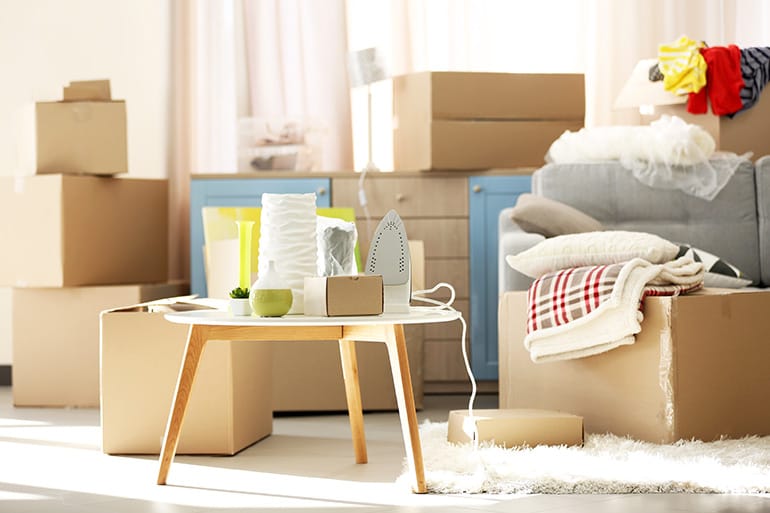 Unless you simply must ship special furniture or other large items, it's best to limit the amount of stuff you take with you and spend your money on purchasing new items instead of forking it over to shipping companies or customs departments.
Having said that, there are things you might not be able to leave behind beyond the basic necessities, such as work files or samples, specialized health equipment, or the only mattress you've ever found that allows you a good night's sleep.
Create a list of must-haves early on in your moving journey so that you can adequately prepare to ship to, locate, or purchase necessary items in your new home. Consider the following:
Unless you simply must ship special furniture or other large items, it's best to limit the amount of stuff you take with you and spend your money on purchasing new items instead of forking it over to shipping companies or customs departments.
Having said that, there are things you might not be able to leave behind beyond the basic necessities, such as work files or samples, specialized health equipment, or the only mattress you've ever found that allows you a good night's sleep.
Create a list of must-haves early on in your moving journey so that you can adequately prepare to ship to, locate, or purchase necessary items in your new home. Consider the following:
- Medications and Medical Equipment: can you buy your prescriptions after moving? Stock up as necessary before the move or identify how you can purchase refills after you settle in. If you can't purchase needed medical equipment in your new country, be sure to bring outlet adapters for the items you will bring with you that need to be plugged in.
- Furniture: how easy will it be to purchase new furniture after you move? If it's simply a matter of going to a nearby furniture shop, it's almost always cheaper to do that than to ship roomfuls of dressers, bed frames, tables, and wardrobes overseas. If you aren't sure if you can purchase what you need when you arrive, find a reputable shipping company and rent a good storage unit in a secure facility in your new hometown so that it will be waiting for you. Ship the very minimum you can get away with.
- Clothing: does your current wardrobe match the new climate and culture? If not, bring only what you need to get by until you can purchase new clothing in your new city.
- Children's Items: will you be able to get the things you currently take for granted, such as disposable diapers, baby food, clothing, shoes, school supplies, and more?
- Comforts: you may be surprised how important this category will end up being as you deal with culture shock. Little comforts from home can help you cope after the initial excitement of living in a new culture wears off (don't worry! Homesickness won't last forever!). Familiar foods take on more importance when you're feeling homesick, so bring peanut butter, Pop Tarts, your favorite cereal, crisps/chips, biscuits/cookies, or whatever you think will give you a little psychological boost when you need it most. Also consider a few favorite books in your native language, or a special blanket, pillow, or stuffed animal. If you won't have access to the Internet, download some of your favorite television shows or movies before moving.
- Work Items: many people move for work, so make sure you'll be able to access everything you need to do the job right. If you can't get it there, bring it with you or arrange to have it delivered.
- Electronic Equipment: you'll need power plug adapters specific to your new country or region if you are packing laptops, phones, tablets, etc. For the long term, consider saving all your important documents to the cloud and then purchasing a new laptop, phone, or tablet after you move.
- Personal Hygiene Products: you may not be able to buy the products or brands you're used to using. Bring them with you as you learn to adapt to what's available in your new home.
Create a Plan Mapping out Your Move
 A plan will help you stay organised and decrease stress during this stressful time. Packing up and moving to a new country is no easy task, so plan as much in advance as you can.
A plan will help you stay organised and decrease stress during this stressful time. Packing up and moving to a new country is no easy task, so plan as much in advance as you can.
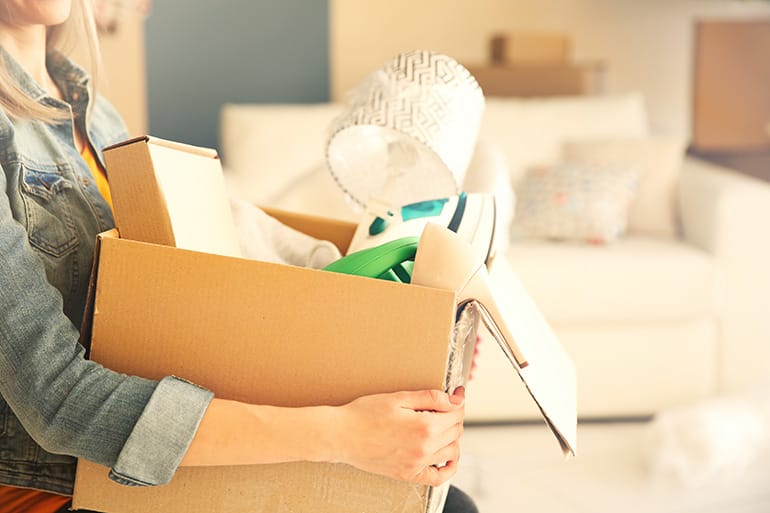 Step 1: Eliminate Clutter
If you don't need to take it with you, you haven't used it in forever, and it makes no sense to store it until you get back (if you plan on moving back), get rid of it. Give it away, sell it, throw it away, or donate it. Just get it out of your house.
Step 1: Eliminate Clutter
If you don't need to take it with you, you haven't used it in forever, and it makes no sense to store it until you get back (if you plan on moving back), get rid of it. Give it away, sell it, throw it away, or donate it. Just get it out of your house.
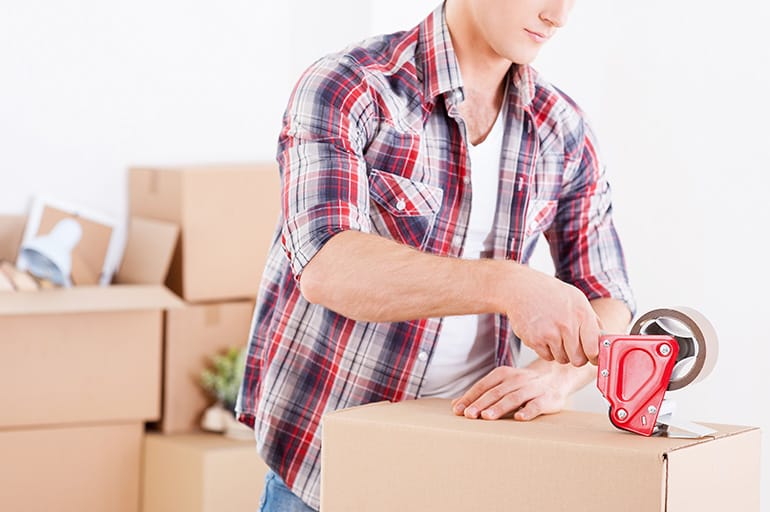 Step 2: Pack up What You're Leaving Behind
List what you plan to keep in storage. Be detailed and specific. If you don't need it between now and your big move, store it as soon as possible to get it out of the way. Depending on how long you have before your big move, pack up two or three boxes or cartons per day—more if you have the time and energy.
Is your employer paying for you to ship household goods? Check on size and weight restrictions as you make your leave-behind list.
Are you paying for shipping? Shipping is costly, so leave behind as much as you possibly can and purchase whatever you need once you've made the move.
Make sure you pack leave-behind items so that they will not rot, mold, or mildew before you repatriate. Also be sure to clearly label cartons and boxes. You'll thank yourself later.
Step 2: Pack up What You're Leaving Behind
List what you plan to keep in storage. Be detailed and specific. If you don't need it between now and your big move, store it as soon as possible to get it out of the way. Depending on how long you have before your big move, pack up two or three boxes or cartons per day—more if you have the time and energy.
Is your employer paying for you to ship household goods? Check on size and weight restrictions as you make your leave-behind list.
Are you paying for shipping? Shipping is costly, so leave behind as much as you possibly can and purchase whatever you need once you've made the move.
Make sure you pack leave-behind items so that they will not rot, mold, or mildew before you repatriate. Also be sure to clearly label cartons and boxes. You'll thank yourself later.
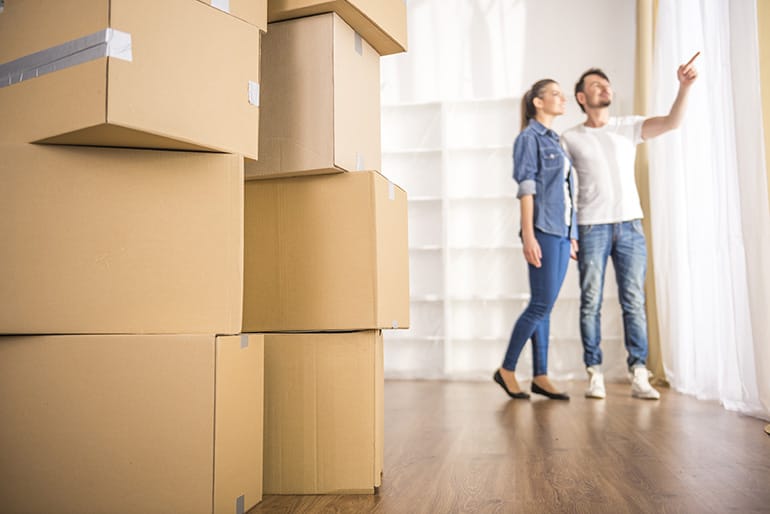 Step 3: Pack What You're Taking
Now you're down to the stuff you're taking with you.
If you are shipping larger items in a shipping container, you will need to arrange when and what will be shipped with your Move Manager (the international shipping company that will be getting your items from one country to the other). Whether your company is paying for the move or you are, you should always be aware of how, what, and when the Move Manager is dealing with your belongings. For an excellent and very thorough explanation of what is involved in successfully shipping household goods overseas, read every word of Sonigo International Shipping's Ed Singer's article entitled A Guide to International Shipping. Shipping scams are abundant, so it pays to educate yourself.
If what you are bringing with you can fit into a few suitcases and a carry-on, congratulations! Your move will be just a little bit less complicated. Check with your airline's weight restrictions and be prepared to pay any fees for overweight baggage or extra cases.
Step 3: Pack What You're Taking
Now you're down to the stuff you're taking with you.
If you are shipping larger items in a shipping container, you will need to arrange when and what will be shipped with your Move Manager (the international shipping company that will be getting your items from one country to the other). Whether your company is paying for the move or you are, you should always be aware of how, what, and when the Move Manager is dealing with your belongings. For an excellent and very thorough explanation of what is involved in successfully shipping household goods overseas, read every word of Sonigo International Shipping's Ed Singer's article entitled A Guide to International Shipping. Shipping scams are abundant, so it pays to educate yourself.
If what you are bringing with you can fit into a few suitcases and a carry-on, congratulations! Your move will be just a little bit less complicated. Check with your airline's weight restrictions and be prepared to pay any fees for overweight baggage or extra cases.
 Step 4: Setting up House in Your New Country
Dive in to your new neighborhood and city as soon as possible. While it may be tempting to hide out in your apartment or house when you're not working, make it a goal to visit at least three new places a week. If you haven't already, take a language class and try to communicate with your neighbors, even if your grasp of the language is very basic. Take guided tours, visit local restaurants, and shop in local stores to begin the process of feeling at home.
Step 4: Setting up House in Your New Country
Dive in to your new neighborhood and city as soon as possible. While it may be tempting to hide out in your apartment or house when you're not working, make it a goal to visit at least three new places a week. If you haven't already, take a language class and try to communicate with your neighbors, even if your grasp of the language is very basic. Take guided tours, visit local restaurants, and shop in local stores to begin the process of feeling at home.
Why Expats Need a Personal Storage Unit
You'd be surprised how handy a good storage unit in a clean and safe facility can be when you're living in a new country.Ease the Stress of an International Move
 Just knowing you have a place to stash extra furniture, needed work-related items, or items you purchase for yourself or for gifts is a big stress reliever. A storage unit doesn't have to be large or costly in order to serve a very important purpose: give you extra storage. Most expats move from larger homes to smaller homes, and it can take a little time to get used to the smaller square footage. A storage unit will help you edit your furnishings as needed.
Just knowing you have a place to stash extra furniture, needed work-related items, or items you purchase for yourself or for gifts is a big stress reliever. A storage unit doesn't have to be large or costly in order to serve a very important purpose: give you extra storage. Most expats move from larger homes to smaller homes, and it can take a little time to get used to the smaller square footage. A storage unit will help you edit your furnishings as needed.
Ease into Your New Home
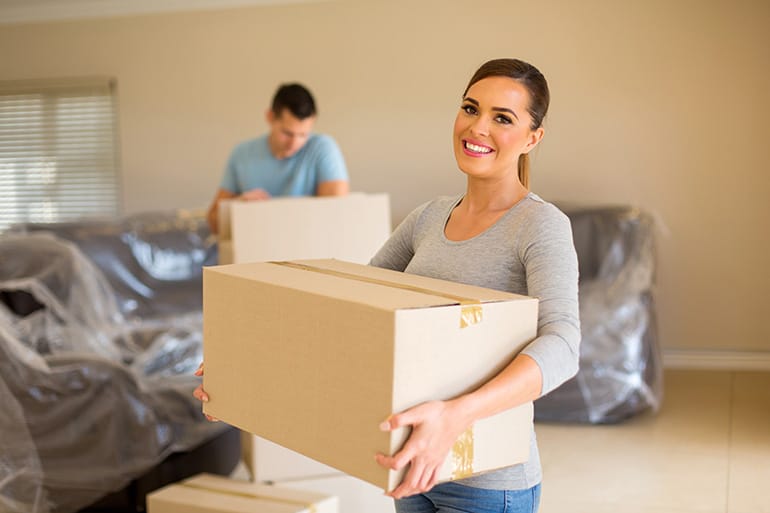 There are always surprises when you're moving from one country to another, from one culture to another. You may find that you hate every stick of the furnishings that come with your furnished apartment, and a storage unit will allow you to safely store your landlord's goods while you substitute items you like better. If you are shipping your household goods, you may find that your new quarters are far smaller than you anticipated, forcing you to edit the furniture you have. A storage facility keeps extra items safe until you decide what to do with them.
During your stay, a storage unit also serves as a place to store new treasures that you purchase. If there are seasons in your new country, a storage unit can keep out-of-season items handy for when you need them again without having them underfoot.
When you have moved for a job, storage units are the perfect place to store work-related materials that won't fit into your home.
You want your new home to be welcoming and comfortable, especially when you are getting used to new sights, smells, tastes, and languages. It can be very comforting to have familiar belongings nearby, and even if you can't keep everything you love in your new abode, visiting a storage unit to see your grandmother's heirloom Welsh dresser or grab the quilt that you've had forever and can use now that nights are getting chilly can really help you get used to your new situation.
There are always surprises when you're moving from one country to another, from one culture to another. You may find that you hate every stick of the furnishings that come with your furnished apartment, and a storage unit will allow you to safely store your landlord's goods while you substitute items you like better. If you are shipping your household goods, you may find that your new quarters are far smaller than you anticipated, forcing you to edit the furniture you have. A storage facility keeps extra items safe until you decide what to do with them.
During your stay, a storage unit also serves as a place to store new treasures that you purchase. If there are seasons in your new country, a storage unit can keep out-of-season items handy for when you need them again without having them underfoot.
When you have moved for a job, storage units are the perfect place to store work-related materials that won't fit into your home.
You want your new home to be welcoming and comfortable, especially when you are getting used to new sights, smells, tastes, and languages. It can be very comforting to have familiar belongings nearby, and even if you can't keep everything you love in your new abode, visiting a storage unit to see your grandmother's heirloom Welsh dresser or grab the quilt that you've had forever and can use now that nights are getting chilly can really help you get used to your new situation.
Access Your Possessions Anytime
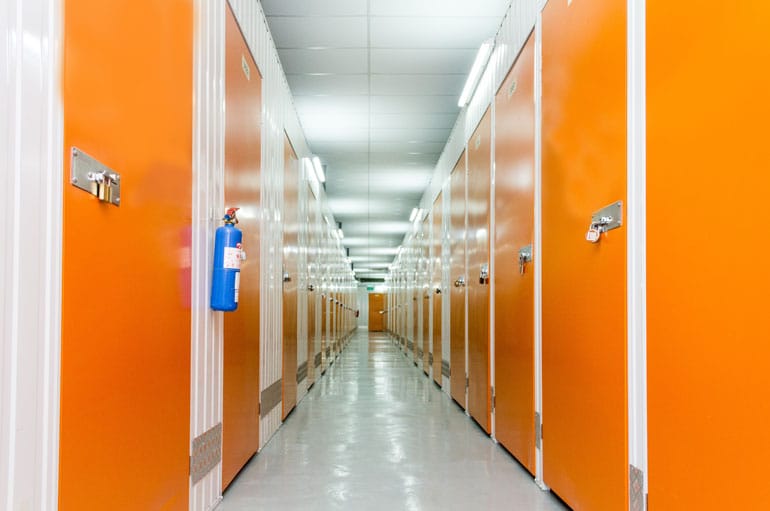 A self storage facility convenient to your home or your work allows you to access your possessions whenever you need them. Even better, a storage facility that gives you 24-hour access to your belongings means that you won't have to rearrange your schedule in order to get there during open hours.
Having quick and easy access lets you use self storage almost like an extra closet. Westerners are often surprised by the much smaller square footage of living spaces in other countries, so being able to use that “extra closet” for temporary or permanent storage definitely eases the transition—especially when you can get to your stuff whenever you need to.
A self storage facility convenient to your home or your work allows you to access your possessions whenever you need them. Even better, a storage facility that gives you 24-hour access to your belongings means that you won't have to rearrange your schedule in order to get there during open hours.
Having quick and easy access lets you use self storage almost like an extra closet. Westerners are often surprised by the much smaller square footage of living spaces in other countries, so being able to use that “extra closet” for temporary or permanent storage definitely eases the transition—especially when you can get to your stuff whenever you need to.
Keep Belongings Safe
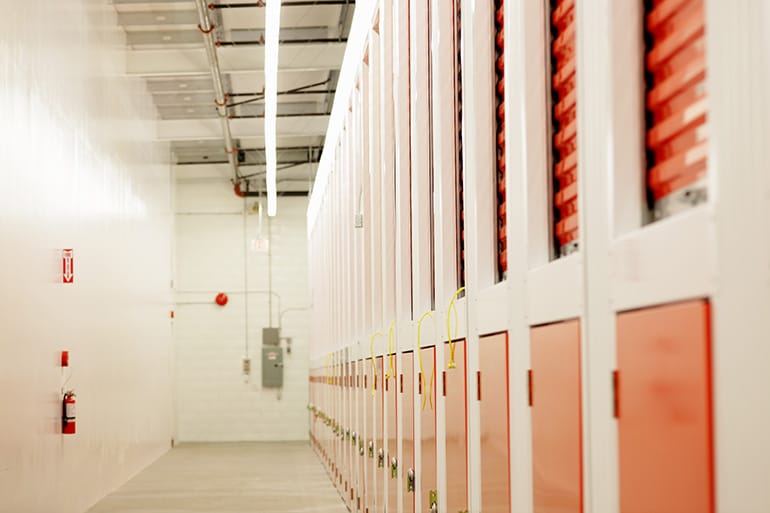 A secure self storage facility will let you stash your belongings with peace of mind. The best facilities incorporate security features such as cameras, motion-sensitive lighting, strong fences, and 24-hour surveillance. Customers must punch in a code or have a key in order to access both the front gates and their individual units, which deters would-be thieves.
A secure self storage facility will let you stash your belongings with peace of mind. The best facilities incorporate security features such as cameras, motion-sensitive lighting, strong fences, and 24-hour surveillance. Customers must punch in a code or have a key in order to access both the front gates and their individual units, which deters would-be thieves.
Tips for Organising Your Storage Unit
Without a plan, you won't be able to make the best use of your storage unit. We've got some tips on how you can maximize every inch of space, including advice on how to keep the items you use most often easily accessible.Make Sure the Size of the Storage Unit Fits Your Needs
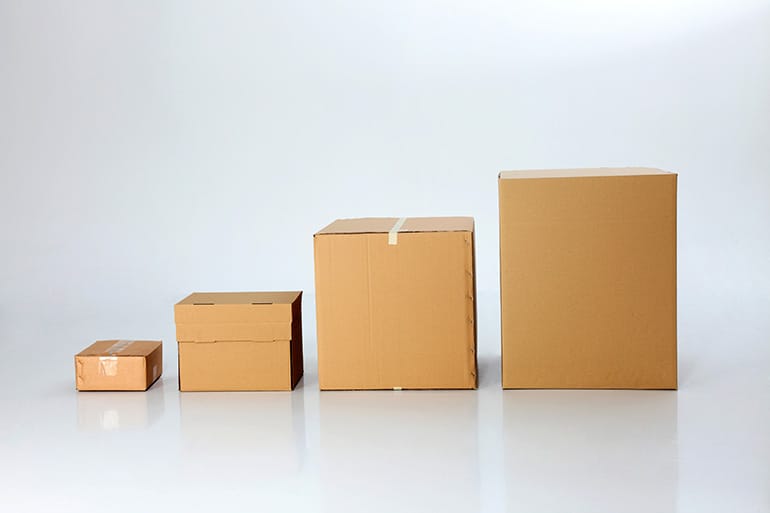 While you'd be surprised how much you can fit into a tight space by using some packing strategy, there's no way to fit three rooms of furniture into the space designed for one. Nor should you pay extra for space you aren't using. Choosing the right size storage unit will save you money and headaches.
The Store It! website has a size estimator page which includes graphics that give you an idea of how much can be stored in their variously sized units. In addition, the Service Managers would invite you to visit the facility so that they can help you determine what size and type of unit is best for you.
If you know that the amount of things you are storing will change frequently as you add more items and take others away, plan to rent a storage unit that will hold the maximum amount of items you plan to store, as this will cut down on the amount of time you have to spend moving everything from one unit to another on a regular basis. You can also choose to rent multiple smaller units as the need arises.
For most people, however, the amount of stored things stays fairly static, and a knowledgeable storage expert at the facility will be able to size up the amount of your stuff and recommend a good fit. Make a list of the items that will be stored, along with the approximate size of the larger items, and bring this along on your visit with a storage expert.
While you'd be surprised how much you can fit into a tight space by using some packing strategy, there's no way to fit three rooms of furniture into the space designed for one. Nor should you pay extra for space you aren't using. Choosing the right size storage unit will save you money and headaches.
The Store It! website has a size estimator page which includes graphics that give you an idea of how much can be stored in their variously sized units. In addition, the Service Managers would invite you to visit the facility so that they can help you determine what size and type of unit is best for you.
If you know that the amount of things you are storing will change frequently as you add more items and take others away, plan to rent a storage unit that will hold the maximum amount of items you plan to store, as this will cut down on the amount of time you have to spend moving everything from one unit to another on a regular basis. You can also choose to rent multiple smaller units as the need arises.
For most people, however, the amount of stored things stays fairly static, and a knowledgeable storage expert at the facility will be able to size up the amount of your stuff and recommend a good fit. Make a list of the items that will be stored, along with the approximate size of the larger items, and bring this along on your visit with a storage expert.
Create a Plan for Your Storage Unit
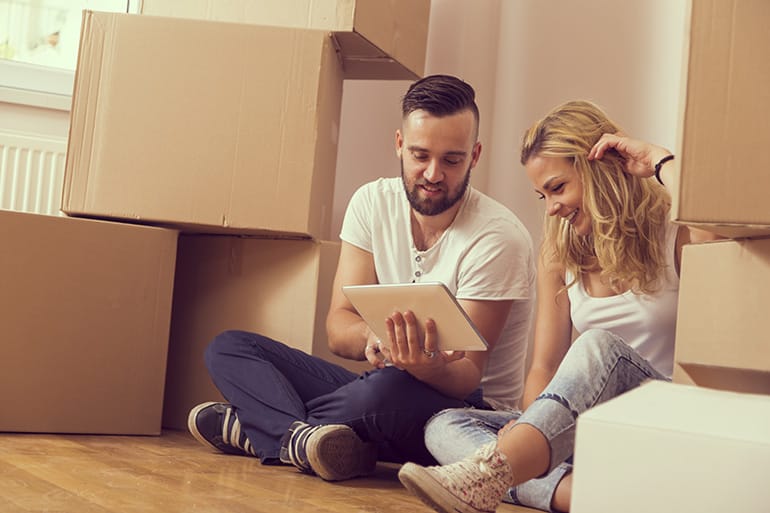 Using a plan to pack your storage unit keeps what you need accessible while still allowing you to get it all in. The time you spend creating a storing plan is very worthwhile.
Step 1: Make a master list of all boxes and items to be stored. If you have multiple boxes of similar items, you can list them in general categories, such as “kitchen tools,” or “bedding.” Make sure all boxes are clearly labeled.
Step 2: List the items that must be accessible. These will be packed into the storage unit last.
Step 3: Put the heaviest boxes at the bottom of the stacks and the lightest boxes at the top. Make sure boxes are fully packed; if there are empty spaces, fill those spaces with packing peanuts, newspaper, or other filler to prevent the boxes from collapsing when stacked. It's a good idea to buy heavy-duty new storage boxes or round up produce boxes from grocery stores. These are less likely to collapse.
Step 4: Turn labels towards the front or to the aisle so that you can easily locate items in boxes.
Step 5: Disassemble tables, bed frames, and any other furniture that can be disassembled for space savings. Put all screws and bolts into baggies that are then taped firmly to the furniture to make future reassembly simple and easy.
Step 6: Maximize the storage space. Read below for tips and ideas on how to do that.
Using a plan to pack your storage unit keeps what you need accessible while still allowing you to get it all in. The time you spend creating a storing plan is very worthwhile.
Step 1: Make a master list of all boxes and items to be stored. If you have multiple boxes of similar items, you can list them in general categories, such as “kitchen tools,” or “bedding.” Make sure all boxes are clearly labeled.
Step 2: List the items that must be accessible. These will be packed into the storage unit last.
Step 3: Put the heaviest boxes at the bottom of the stacks and the lightest boxes at the top. Make sure boxes are fully packed; if there are empty spaces, fill those spaces with packing peanuts, newspaper, or other filler to prevent the boxes from collapsing when stacked. It's a good idea to buy heavy-duty new storage boxes or round up produce boxes from grocery stores. These are less likely to collapse.
Step 4: Turn labels towards the front or to the aisle so that you can easily locate items in boxes.
Step 5: Disassemble tables, bed frames, and any other furniture that can be disassembled for space savings. Put all screws and bolts into baggies that are then taped firmly to the furniture to make future reassembly simple and easy.
Step 6: Maximize the storage space. Read below for tips and ideas on how to do that.
Maximize Storage Space
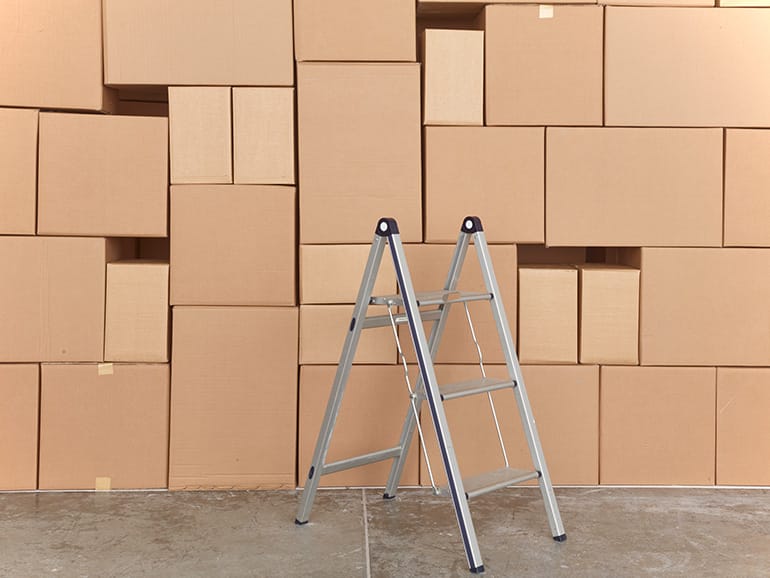 Think of filling your storage unit like playing a game of Tetris, where different shapes are fitted together in the most economical manner possible. By maximizing your storage space, you can surprise yourself with how much you can actually fit in.
Handy Tips for Maximizing Storage Space:
Think of filling your storage unit like playing a game of Tetris, where different shapes are fitted together in the most economical manner possible. By maximizing your storage space, you can surprise yourself with how much you can actually fit in.
Handy Tips for Maximizing Storage Space:
- Fill drawers in dressers, desks, cabinets, and appliances such as microwaves with storage items.
- Use a sturdy shelving unit to store delicate or oddly shaped items.
- Use extra clothing, towels, or other flexible items as fillers in partially empty boxes to provide stability. Label the boxes accordingly.
- Nest and stack chairs and tables to reduce their overall footprints.
- Disassemble furniture such as tables and bed frames so that you can store them flat.
- Don't forget to use the empty space left underneath furniture or large items.
- Most storage units are eight feet high. Utilize that height, but make sure heavier items are stored at the bottom of stacks.
- Turn items on their sides or backs if it will not harm them and will give you more space. For example, a couch or sofa takes up a lot less floor space when stored on end. Just be sure to protect furniture with dust covers or blankets.
- While it might seem counterintuitive, leave an aisle just wide enough to let you squeeze into the back of the unit and retrieve items. If there isn't enough room for an aisle, be sure to leave enough space between stacks to allow air to flow and prevent mold and mildew growth.
Ensure Items You Need Are Accessible
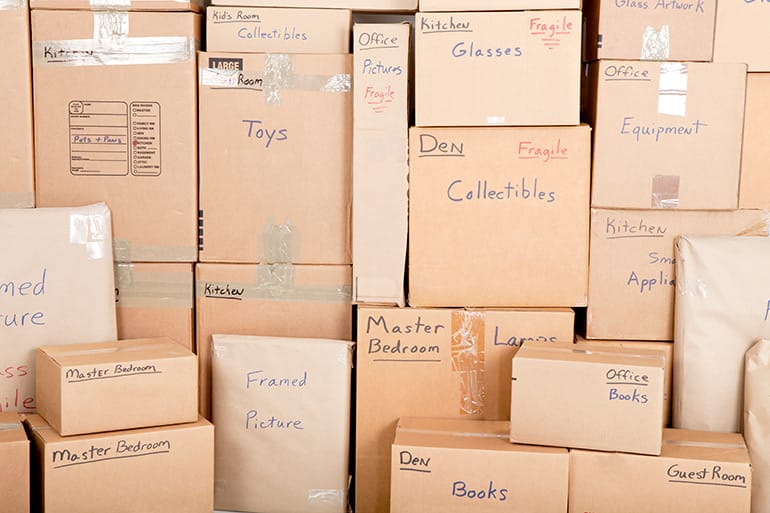 This bears repeating, even though it's mentioned above. If you need to access clothing, documents, furniture items, or business/work items, they need to be accessible from the front of the unit, near the door. The only way to do this is to pack these into the storage unit last.
If the number of items you will need access to is too much to have them all front-and-center, create one or more aisles through your stored items through which you can move. It's a great idea to store a step stool or short ladder that you can use to heft boxes and things off the tops of your stacks, up near the ceiling.
If you need to access any item in your storage unit at any time, your packing strategy will be a little different. No stack should be more than one box deep, and you will need to incorporate space around each of these stacks or items in order to get at them without having to unpack your unit every time you visit. Depending on the amount of things you are storing, you may need to rent a large unit or multiple smaller units to make this possible. If quick and easy access is absolutely necessary, the extra money you pay in rent will be worth it.
This bears repeating, even though it's mentioned above. If you need to access clothing, documents, furniture items, or business/work items, they need to be accessible from the front of the unit, near the door. The only way to do this is to pack these into the storage unit last.
If the number of items you will need access to is too much to have them all front-and-center, create one or more aisles through your stored items through which you can move. It's a great idea to store a step stool or short ladder that you can use to heft boxes and things off the tops of your stacks, up near the ceiling.
If you need to access any item in your storage unit at any time, your packing strategy will be a little different. No stack should be more than one box deep, and you will need to incorporate space around each of these stacks or items in order to get at them without having to unpack your unit every time you visit. Depending on the amount of things you are storing, you may need to rent a large unit or multiple smaller units to make this possible. If quick and easy access is absolutely necessary, the extra money you pay in rent will be worth it.
Organise in Preparation for Your Return Home
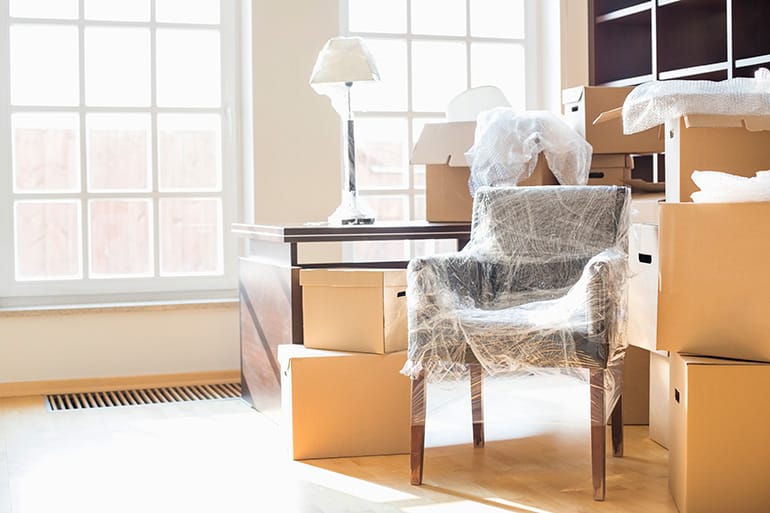 It's time to go back home, and now you have a stash of treasures you want to bring with you to remind you of your international adventures. Organising your storage unit in preparation for packing it up and shipping it overseas is much like the process of getting there in the first place. While it's still easiest to take as little back with you as possible, if you decide to ship some items back, you can prepare both them and your storage unit to make things as simple as possible.
If you plan on shipping back lots of large furniture items, your best option will be to have it taken by ship. Read this article by Ed Singer to understand all the relevant aspects of successfully shipping your belongings. Smaller items can be shipped by air in boxes or packed in your suitcases and carry-on.
Use the days and weeks before you go back home to prep your storage unit for quick packing. Large items should be wrapped in dust cloths or moving pads and plastic wrap film. Smaller items should be boxed securely in sturdy boxes, all voids filled with packing peanuts or other materials that will prevent items from shifting. Chances are that you will need to send off your shipped items first (it can take a couple weeks for them to make the trip), so place these at the front of your unit for quick access. Anything being taken later should be at the back.
It's time to go back home, and now you have a stash of treasures you want to bring with you to remind you of your international adventures. Organising your storage unit in preparation for packing it up and shipping it overseas is much like the process of getting there in the first place. While it's still easiest to take as little back with you as possible, if you decide to ship some items back, you can prepare both them and your storage unit to make things as simple as possible.
If you plan on shipping back lots of large furniture items, your best option will be to have it taken by ship. Read this article by Ed Singer to understand all the relevant aspects of successfully shipping your belongings. Smaller items can be shipped by air in boxes or packed in your suitcases and carry-on.
Use the days and weeks before you go back home to prep your storage unit for quick packing. Large items should be wrapped in dust cloths or moving pads and plastic wrap film. Smaller items should be boxed securely in sturdy boxes, all voids filled with packing peanuts or other materials that will prevent items from shifting. Chances are that you will need to send off your shipped items first (it can take a couple weeks for them to make the trip), so place these at the front of your unit for quick access. Anything being taken later should be at the back.
Conclusion
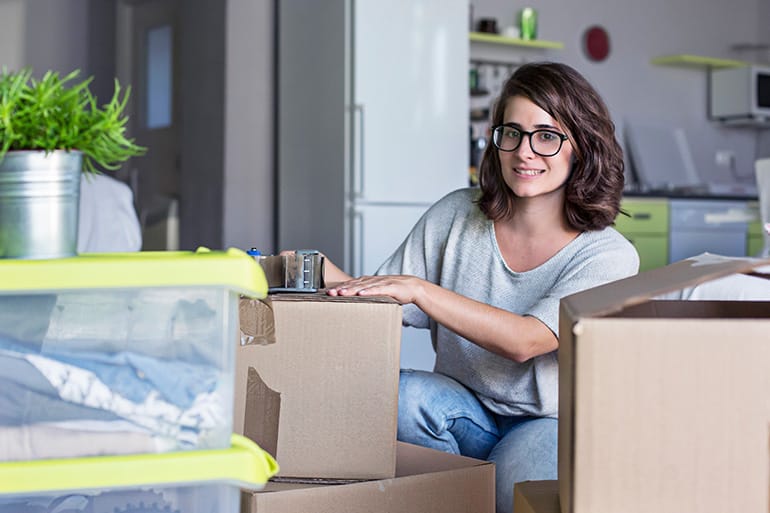 You're going on an adventure to a new country, and now you have to decide what you're going to take with you. Expats are often confused about what they need to bring and what they should leave behind, but this article will give you some great ideas about what you'll need and how to get it there.
When you arrive in your new home, a storage unit in a secure, clean self storage facility can prove invaluable in allowing you to adjust to smaller living spaces, safely storing valuables and work items out of your house but within easy access, and giving you some place to keep out-of-season items along with the treasures you are collecting to take back home with you.
We've given you some valuable tips and advice on how to choose an appropriate self storage facility, choose the right size unit, pack your items, and make maximum use of every inch of the storage space in your unit.
If you love it, store it at Store It! self storage facilities located in the beautiful city of Bangkok. We're happy to help you identify the right storage unit for your needs and provide a clean, conveniently located secure facility with 24/7 access to your belongings. Get a Quote today and start your exciting new adventure in both fantastic self storage and your new life in Bangkok.
You're going on an adventure to a new country, and now you have to decide what you're going to take with you. Expats are often confused about what they need to bring and what they should leave behind, but this article will give you some great ideas about what you'll need and how to get it there.
When you arrive in your new home, a storage unit in a secure, clean self storage facility can prove invaluable in allowing you to adjust to smaller living spaces, safely storing valuables and work items out of your house but within easy access, and giving you some place to keep out-of-season items along with the treasures you are collecting to take back home with you.
We've given you some valuable tips and advice on how to choose an appropriate self storage facility, choose the right size unit, pack your items, and make maximum use of every inch of the storage space in your unit.
If you love it, store it at Store It! self storage facilities located in the beautiful city of Bangkok. We're happy to help you identify the right storage unit for your needs and provide a clean, conveniently located secure facility with 24/7 access to your belongings. Get a Quote today and start your exciting new adventure in both fantastic self storage and your new life in Bangkok.
Written by MeSpace Self Storage Specialist
With experience and expertise in the self-storage business, MeSpace's specialists are dedicated to providing valuable information and advice for your storage needs. From organizing and cleaning tips to advanced storage techniques, our specialists offer comprehensive guidance to help optimize your storage space and simplify your life.
Relate Blog


